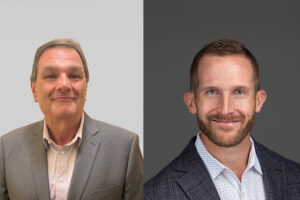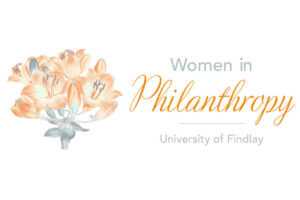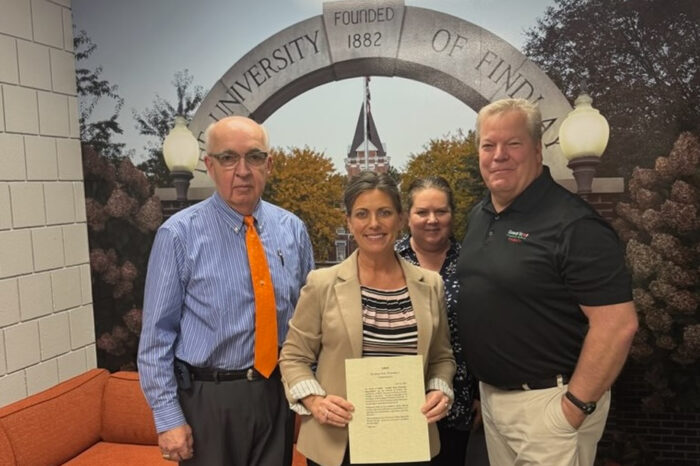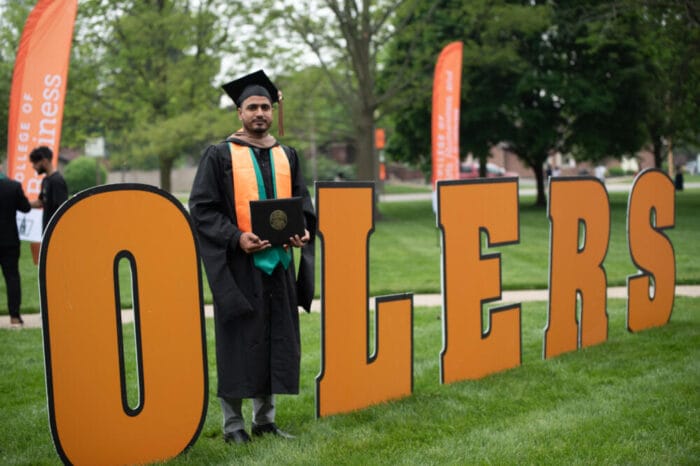University of Findlay Preparing Pharmacy Students for a Greater Role in Patient Care

University of Findlay’s Pharmacy program takes a complete approach in preparing students to be well-rounded pharmacists in their 6-year Doctor of Pharmacy Program. This all-encompassing approach to medicine and care comes at a time when pharmacists are forecasted to take on a greater role in patient care.
The forecasted changes for pharmacists are the result of a shortage of primary care physicians, and the positively-viewed role that pharmacists took during COVID-19 (testing and vaccinations). The Association of American Medical Colleges (AAMC) reports that the projected shortage of primary care physicians by 2034 will be between 17,800 – 48,000. At the same time the country is seeing a shortage of primary care physicians, surveys are showing that people believe pharmacists should be able to step in when their doctors cannot. A survey from CVS Health and Morning Consult found that 61% of people would like to get a broader range of services at their local pharmacy. 74% of people also said they trust their local pharmacists and agree they should be able to step in when primary care is not available.
University of Findlay’s Dean of the College of Pharmacy, Debra Parker, Pharm.D. said this forecast does not surprise her, “I believe we are closer than we have ever been to seeing the reimbursement model change in this country. This will improve access to high-quality care provided by pharmacists, especially in rural and underserved areas. Our students will see this change, and they are well-prepared,” said Parker. She also stated that pharmacists have increasing ability to do point-of-care testing (flu, strep, COVID-19, etc.), but said what’s holding back additional care is the country’s current model for paying for those services. Parker pointed to Medicaid, Medicare, and private insurers who often do not pay the pharmacist for certain services and require additional steps for pharmacists to be reimbursed.
When asked if current UF pharmacy students would be ready to take on a bigger role in healthcare, Parker confidently stated “Yes,” pointing to the University of Findlay’s hands-on and experiential learning. “Starting in the first year, students learn in a skills and application lab each semester, where they hone their written and verbal communications skills in a wide variety of scenarios. They work with mock prescribers and mock patients, before moving on to real patients,” said Parker.
The University’s Diversity, Equity, and Inclusion (DEI) committee also plays a role in preparing UF pharmacy students, focusing on providing education and growth opportunities that improves the students’ ability to work with and support one another. “Skills labs, service learning, DEI initiatives, and service learning are invaluable in preparing our students to serve our communities and to be effective leaders in whatever area they choose to practice,” Parker said.
Students who graduate from the University of Findlay’s Doctor of Pharmacy Program, are qualified to work in a community retail setting (Rite Aid, Walmart, etc.), hospital settings, long-term care, and outpatient clinics for special populations (HIV, pediatrics, diabetes, etc.), as well as research, insurance, government regulatory agencies, and more. “Our students learn in various settings, with experiential learning accounting for 1/3 of the education in UF’s curriculum. They spend at least 100 hours each year for three years in a wide variety of pharmacy practice settings, with the entire final year of training being spent entirely in patient care rotations,” said Parker.
During the COVID-19 pandemic, many physicians cited burnout as a reason for leaving, or thinking about leaving the healthcare field. When asked about future pharmacists suffering from burnout due to taking a greater role in healthcare, Parker said keeping well-being a personal priority is important, and is something the University of Findlay helps students with. “We have developed an elective course for our students that focuses on mindfulness, well-being, and coping techniques for now, as well as in their future careers. In another course, we talk about healthy ways to deal with stressors and pain, and what can happen when we turn to unhealthy sources to deal with them,” said Parker.
The AAMC is projecting physician demand will grow faster than supply. At the same time, the “Journal of the American Pharmacists Association” states 89% of the US population lives within five miles of a community pharmacy (even those people in rural and low-income urban areas. “Combine all these facts, and we have the recipe for the right provider, in the right place, and at the right time to positively impact patient care in this country. The COVID-19 pandemic is just the tip of the iceberg in demonstrating the accessibility and the front-line role pharmacists have in this country,” said Parker.
To learn more about University of Findlay’s pharmacy program, and how you can take a greater role in the healthcare field, visit UF’s pharmacy webpage.














